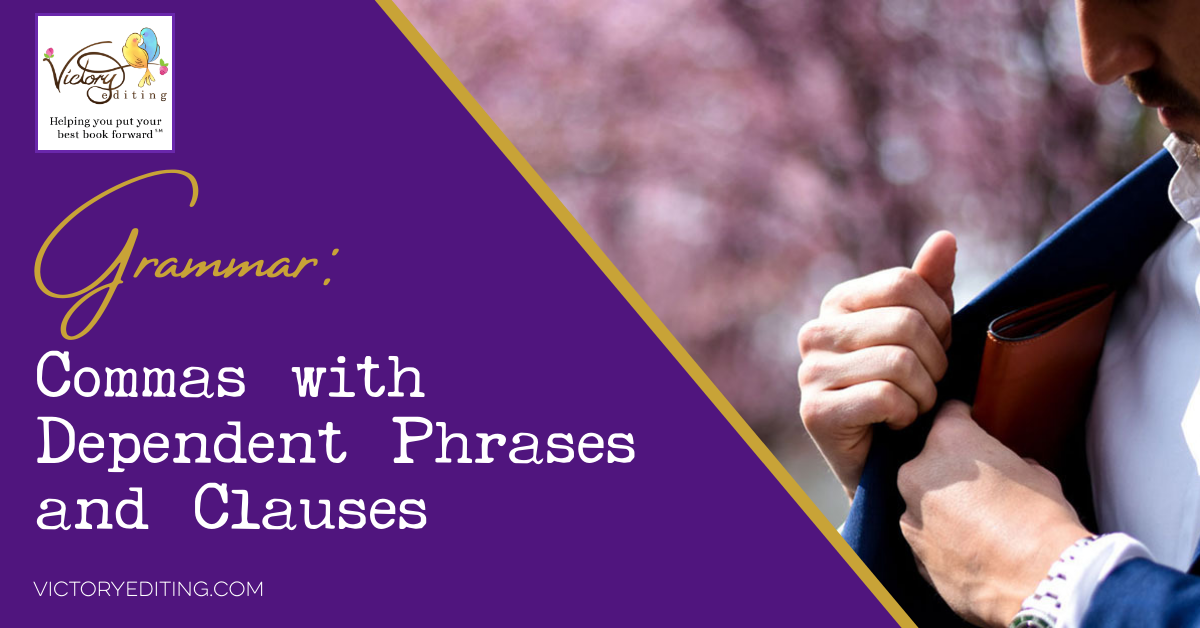Dependent phrases and clauses usually take a comma when they’re at the beginning of a sentence but not when they’re at the end, especially if they’re adverbial (describing when, how, or where).
For example:
If I go to the store, I need to take my wallet.
BUT
I need to take my wallet if I go to the store.
Another example:
A few butterflies sunned themselves but then disappeared when it began to rain. (No comma between themselves and but!)
And two final examples:
“No, I don’t need any milk,” I said as I looked in the refrigerator. (Please don’t put a comma between said and as…🙂)
After reading the note, Henrietta turned pale.
BUT
Henrietta turned pale after reading the note.
Learn more:
You can find more examples in Chicago Manual of Style 6.36. There are also examples in The Blue Book of Grammar, Grammar Girl’s Quick and Dirty Tips for Better Writing, and most other punctuation books and style guides.
Photo by Andrea Natali on Unsplash
Hi! I’m in the process of putting together a grammar class. You can click below to see what classes are coming down the pike and to sign up to be notified when they launch. I can’t wait to see you there!


